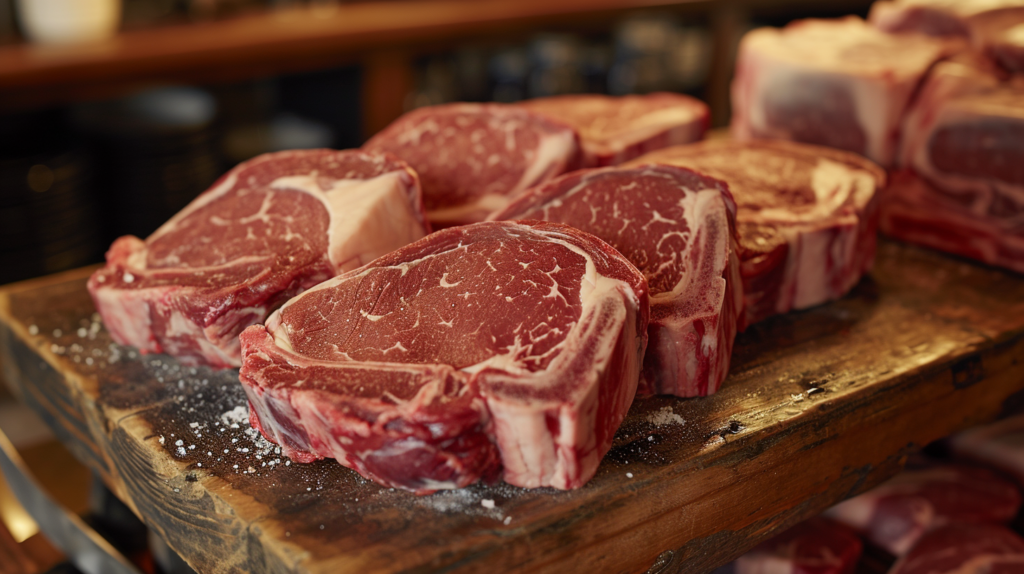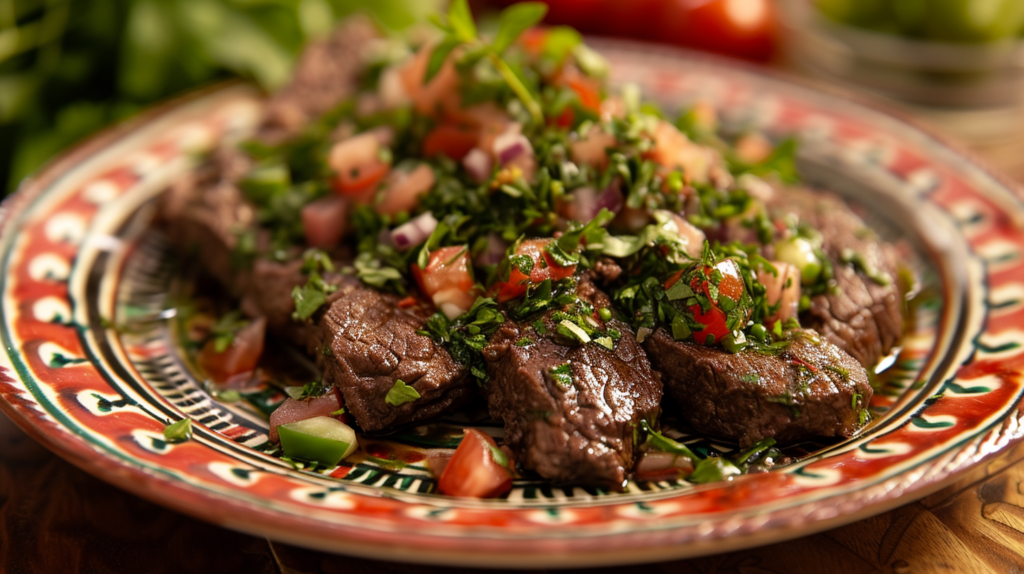Red meat stands as a crucial component of a well-balanced diet. This blog delves into the scientific significance of including red meat in your diet, focusing on its nutrient richness, role in the Mediterranean diet, and the benefits of grass-fed beef. Understanding these aspects can guide us towards making more informed dietary choices aligned with our evolutionary needs.

Nutrient Richness of Red Meat
Meat is a powerhouse of essential nutrients. According to Giromini & Givens (2022), it provides bioavailable nutrients and high biological value protein, critical for maintaining skeletal muscle and bone health. This aspect is especially beneficial during critical life stages such as pregnancy. The proteins in red meat are complete, containing all nine essential amino acids necessary for the human body, making it an optimal choice for muscle building and maintenance.
The Role of Iron in Red specifically Meat
Red meat is also a significant source of iron. Mota, Guillou, Pierre, & Membré (2021) emphasize its role in mitigating the risk of iron deficiency anemia (IDA), a widespread nutritional deficiency. The heme iron in red meat is highly bioavailable, meaning our bodies can absorb and utilize it more effectively than non-heme iron found in plant-based sources.
Meat in the Mediterranean Diet
The inclusion of red meat in the Mediterranean diet, as highlighted by Uzhova & Peñalvo (2018), underscores its importance in preventing cardio-metabolic diseases. This diet, celebrated for its heart-healthy benefits, incorporates red meat as a source of high-quality protein, B vitamins, and essential amino acids. Additionally, red meat offers omega-3 polyunsaturated fatty acids, phosphorus, zinc, iron, and selenium – all key players in maintaining optimal health.


Benefits of Grass-Fed Beef
Focusing on grass-fed beef, as per Davis, Magistrali, Butler, & Stergiadis (2022), we find a superior nutritional profile. Grass-fed beef is rich in beneficial fatty acids, notably omega-3 and alpha-linolenic acid. These fatty acids are crucial for brain health and reducing inflammation in the body. Opting for grass-fed beef aligns with our philosophy at Organic Oasis Mag, emphasizing natural and unprocessed dietary choices.
The Nutritional Value of Organ Meats
Lastly, organ meats, especially liver, are exceptionally nutrient-dense. They provide a concentrated source of iron, B vitamins (notably B12), vitamin A, and trace minerals. Including organ meats in your diet can efficiently meet daily nutritional requirements, offering benefits beyond what muscle meats alone can provide. If you need kitchen designs for rustic homes when cooking red meat, check this blog.
In conclusion, red meat embodies a critical component of a natural, unprocessed diet, aligning with our ancestral dietary patterns. Its inclusion in our diet provides essential nutrients in their most bioavailable forms. By choosing grass-fed options and incorporating organ meats, we can maximize the nutritional benefits while adhering to our philosophy of natural, wholesome eating. Red meat is not just a food item; it’s a vital component of a health-focused lifestyle, deeply rooted in our evolutionary history. Read more about our other blogs here.